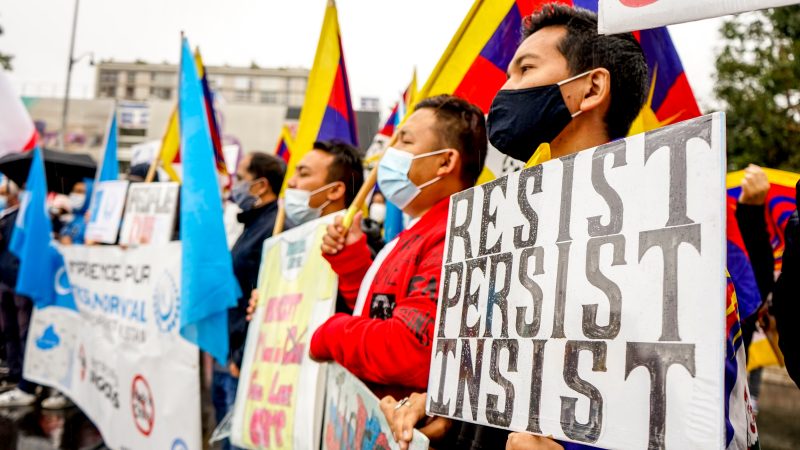
Hongkongers in the UK and their allies are raising the alarm about provisions in the government’s policing bill that would allow the police to place noise-based restrictions on protest. They are right to do so: those who have spent years fighting for democracy in Hong Kong know better than many the importance of protest as a way of defending freedoms, and have seen how easily repressive laws can strip those rights away.
The police, crime, sentencing and courts bill (PCSC bill) currently going through parliament contains an astonishing breadth of measures – not least enabling the police to impose noise-based restrictions on protest that causes “serious unease, alarm or distress”. Hongkongers living in the UK are rightly concerned that these measures could affect their right to protest.
Currently, there are regular and vital protests outside the Chinese embassy against the Chinese Communist Party’s ethnic cleansing of Uyghurs and other ethnic minorities, and its clampdown on Hongkongers’ rights through the National Security Law. But under the powers in the bill, embassy officials could put pressure on the police to impose noise-based restrictions on such protests on the basis that the noise generated from these protests causes them to feel “serious unease” – thereby stopping people from protesting repressive state regimes.
These are serious measures. Protesters who violate the noise-based conditions could face up to 51 weeks in prison, a fine, or both; not only this, but it will no longer need to be proven that an individual knew that a condition was in place before being caught by the offence of breaching it – only that they ought to have known. If the police set a noise-based restriction on a protest, how will an individual know if they have personally breached it? It’s easy to see how this could both deter people from exercising their right to protest and drag people into the criminal justice system for doing so.
This proposed new power strikes at the heart of what makes a protest effective and powerful: protesters make noise so they can be heard by those who have previously refused to listen. Past protests in Hong Kong – one of which saw more than two million people attend in 2019 – could have fallen foul of noise-based restrictions simply as a result of the sheer number of people gathering. Measures in this bill risk criminalising people who protest in this country to raise awareness of the serious human rights abuses taking place in Hong Kong and elsewhere. Hongkongers did not leave their home expecting to become subject to anti-democratic and repressive measures in the UK – and yet this bill may do just that.
In providing Hongkongers with safe sanctuary, the UK has continually invoked its international reputation as a defender of human rights. But the cruel irony is that in passing this bill, that reputation will be threatened. It’s not only the noise-based measures that make this bill a deeply authoritarian move: it would also criminalise one-person protests, give police powers to clamp down on static demonstrations, create new stop-and-search powers and threaten the way of life of Gypsy and Traveller communities.
Throughout history, protest has been a vital way for oppressed communities to stand up against injustice and – literally – make their voices heard. From the suffragettes to Black Lives Matter protesters to Hongkongers standing against police brutality and political repression, no effective protest has ever been quiet. When the bill returns to the House of Commons this week, I urge all MPs to join me in voting down these dangerous and authoritarian measures.




More from LabourList
‘The hope that kills you’: Reflections from the final day in Gorton and Denton
MPs, union leaders and organisations react to ‘bruising’ Gorton and Denton result
A gory night for Labour